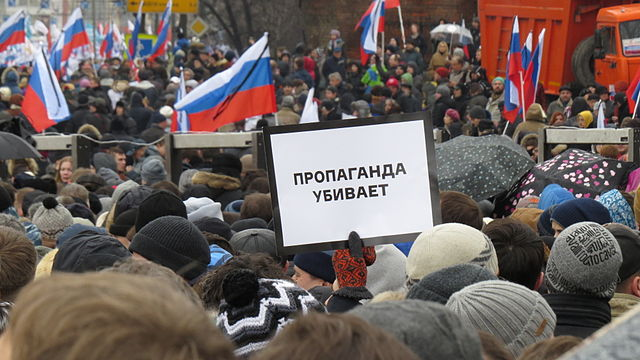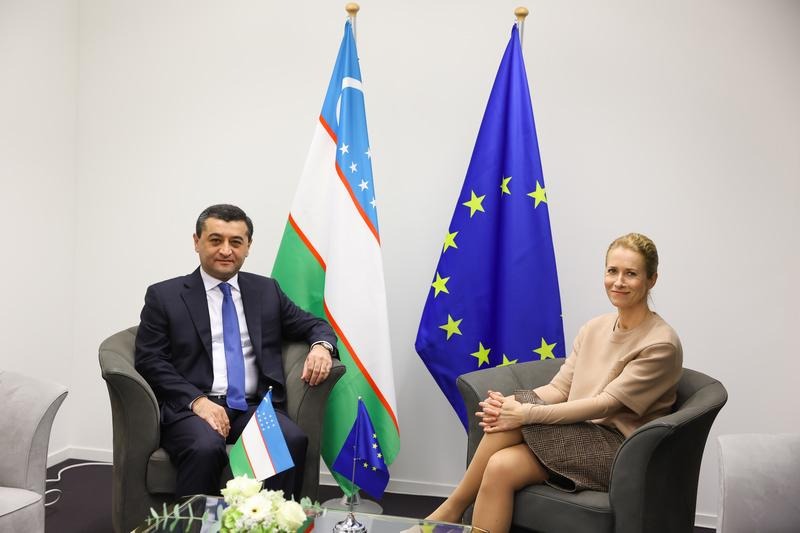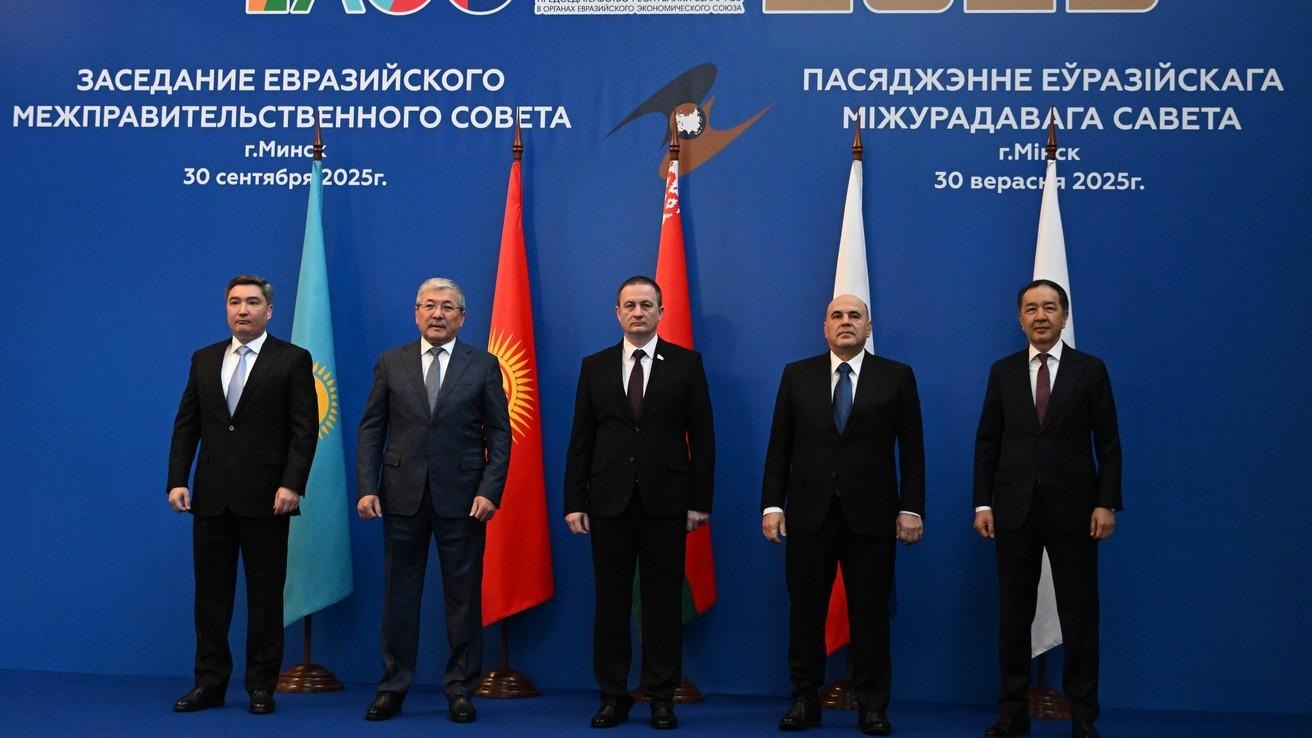
Russian Disinformation Targets the European Union
Russian Disinformation Targets the European Union
Executive Summary:
- Russia continues to conduct misinformation campaigns against Europe. As its war in Ukraine continues and Europeans become tired of the prolonged conflict, fewer people will be engaged and thus more susceptible to disinformation coming from Russia.
- Russia’s current disinformation campaign revolves around three key ideas: the spread of anti-Ukrainian agendas, anti-EU themes and narratives, and the glorification of Russia, its military-political leadership, diplomacy, and economic “achievements.”
- Ordinary people already see the problems within European society that the European Union needs to solve, and it will only take a slight push from Russia to spur discontent among vulnerable populations against their governments’ shortcomings.
As Russia’s war with Ukraine continues, Russian disinformation campaigns are being unveiled across Europe. In September, a consortium of European media outlets leaked records of the operations of the Social Design Agency, a Moscow-based company reportedly leading Russia’s propaganda campaign (Radio Free Europe/Radio Liberty, September 17). Russia conducts disinformation campaigns through various mediums, predominately on social media through memes, fake accounts, and falsified content. On May 15, an EU briefing in Brussels declared that Russia remains the most significant threat regarding the spread of anti-EU disinformation, primarily through the manipulation and weaponization of information (X.com/VeraJourova; DW, May 15). Because Russia perceives the European Union as politically and socially divided, economically stagnant, and a weak military entity, Moscow will continue, and even strengthen, its anti-EU disinformation campaign in the near future. As Russia’s war in Ukraine continues and Europeans become tired of the prolonged conflict, fewer people will be engaged and thus more susceptible to disinformation coming from Russia.
Being a target of a Russian disinformation campaign is nothing new to the European Union. Since 2015, EU officials and disinformation experts have traced over 17,000 instances of Russian-generated anti-EU propaganda. The first half of 2024 was marked by 1,500 cases alone. According to EU officials, Russia’s current disinformation campaign revolves around three key ideas: the spread of anti-Ukrainian agendas; anti-EU themes and narratives; and the glorification of Russia, its military-political leadership, diplomacy, and economic “achievements” (DW, May 15).
In 2014, anti-EU-centered disinformation spiked following Russia’s illegal annexation of Crimea and the spreading violence in Donbas. At that time, Russia started to actively use themes such as migration, climate change, LGBT rights, traditional (conservative) values, and the growing depopulation and impoverishment in the European Union in general in their campaigns (see EDM, January 27, 2017). Furthermore, Russia’s information warfare has attempted to depict the Baltic States’ participation in the European Union as a continuation of Nazi Germany and its vision of Europe (X.com/amb_ulyanov, May 11, 2022; X.com/mfa_russia, May 13, 2022). [1] According to Josep Borrell, the EU High Representative for Foreign Affairs and Security Policy, by 2021, Russia’s disinformation—primarily pertaining to the COVID-19 pandemic—had reached an “industrial scale,” as more and more “actors” began participating in its dissemination (European Union, March 1, 2021; RBC Ukraine March 2, 2021).
Following the outbreak of Russia’s aggression against Ukraine in 2022, its use of disinformation against the European Union and individual member states spiked. The general mechanics of Russia’s disinformation campaign strategy has not changed. Russian disinformation outlets find a fact that is true, then it is either disseminated to a broader audience without context, in a different context that changes its meaning, or, most commonly, becomes embedded in numerous layers of lies. Such information is not only becoming easier to sell to those less versed in politics or economics but is also eagerly being used by anti-EU politicians within the European Union for their own purposes and agendas.
After February 2022, Ukraine came to occupy a central place in Russia’s disinformation narratives. Russia’s disinformation campaigns aim not only to stir up anti-Ukrainian sentiment within the European Union but also to portray EU leadership as weak and poorly representing the interests of Ukrainians. Russian narratives reframed the war in Ukraine as a conflict started by Western interests and biases. They claim Europeans are tired of Ukrainian refugees and are planning to deport them back to their own country. It reframes the European Union’s support of Ukraine as stemming from the union’s hatred of Russia and continuation of pro-neo-Nazi views (Rubryka.com, May 9). Additionally, the rhetoric claims that the United States supports Ukraine only out of a desire for control over the country’s natural resources (Gold.ru, May 9). Russia also alleges that its war against Ukraine was in fact defensive in nature, with the “special military operation” only being undertaken because the United States, European Union, and North Atlantic Treaty Organization (NATO) were planning to attack Russia from Ukrainian territory (Meduza, January 29, 2022; NATO, January 12).
Alongside Ukraine, Germany—the European Union’s largest economy and a political heavyweight—continues to be a primary target of Russian disinformation. A study by Der Spiegel claimed that an X-based network consisting of at least 50,000 false accounts has generated more than 1,000,000 tweets specifically targeting Germans’ support for Ukraine, aiming to discredit the German government and distort its true intentions. The disinformation campaign generated public discontent over aid to Ukraine, arguing that it represented excessive and wasteful spending by the German government during a time of economic hardship. The most common message disseminated by Russian propaganda is the idea that the German government is hurting its own citizens, sacrificing their well-being to support Ukraine (Spiegel.de; Svoboda.org, January 26).
Another notable feature of post-2022 Russian propaganda is the phrase, “The best defense is a good offense.” Instead of trying to counter the European Union’s allegations of disinformation, Russia accuses the European Union of launching its own disinformation campaigns against Russia (RBC, May 1). Russian experts also try to create parallels between “[European Union]’s preparation for an info-war with Russia” with “[Adolf] Hitler’s preparation for [his] attack against the [Soviet Union].” Russian experts also argue that the European Union “has effectively evolved into the Fourth Reich,” whose primary goal is to try to find ideological justification for further aggression against Russia, likewise suggesting that Ukraine has already become the European Union’s testing ground for a future war (Veridica.ro, September 20). No matter how many times Russia’s disinformation campaign restructures itself, the seeds of doubt it has sown toward EU officials and the apathetic sentiment that “everybody lies” will be tough to combat (Rubryka.com, May 9).
Effectively curbing Russian disinformation will require various methods. First, Poland recently suggested the formation of a transatlantic alliance to fight against Russian disinformation. (Eurointegration.com.ua, July 21). Second, the European Union must be sure to provide Ukraine with the necessary aid to win the war, because, as the war continues and support wanes among EU populations, Europeans will be more susceptible to disinformation as they tire of the conflict. Third, officials must address some of the European Union’s issues that Russian disinformation has exaggerated and overblown. Without measurable actions and structural reforms—including a drastic improvement in innovation, finding new markets, achieving energy- and commodity-related security, and resolving the European demographic crisis—fighting Russian propaganda and disinformation is pointless. Ordinary people will see the problems within European society, and it will only take Russia a slight push to spur discontent among vulnerable populations.
Notes:
[1] From 1941 to 1944, Nazi Germany occupied the Baltic States following the Soviet annexation of the region in 1940. The region remained occupied by the Soviet Union until its disillusion in 1991.


